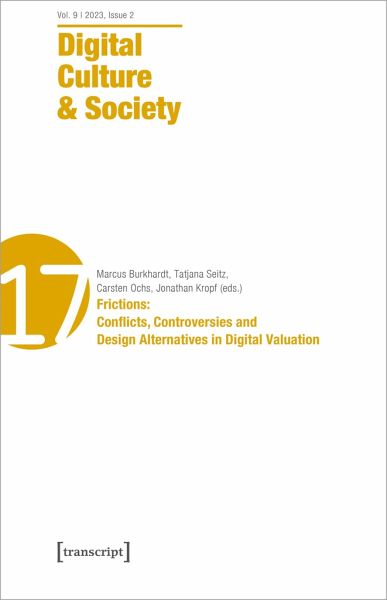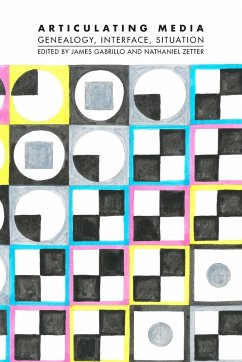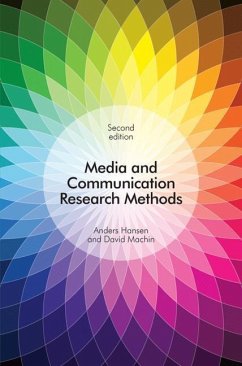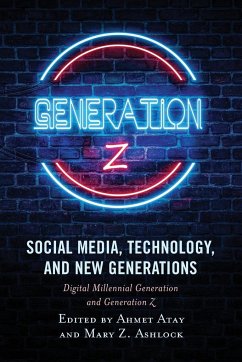
Digital Culture & Society (DCS)
Vol. 9, Issue 2/2023: Frictions: Conflicts, Controversies and Design Alternatives in Digital Valuation
Herausgegeben: Burkhardt, Marcus; Kropf, Jonathan; Ochs, Carsten; Seitz, Tatjana; Simanowski, Roberto; Schröter, Jens; Kaldrack, Irina; Coté, Dr Mark; Fizek, Sonia; Scholz, R. Trebor; Sharon, Tamar; Pettm
Versandkostenfrei!
Sofort lieferbar
19,99 €
inkl. MwSt.

PAYBACK Punkte
10 °P sammeln!
With the proliferation of smart devices such as smartphones, smart watches, and smart speakers as well as the ongoing push toward smart cities, humans, technologies, and environments have become entangled in increasingly complex yet seemingly frictionless infrastructures of datafication and computation. A seemingly frictionless user experience, however, conceals the contradictions, power asymmetries, and polarisations that shape our digital cultures. This issue of Digital Culture & Society takes the notion of frictions as a starting point for a situated analysis of our digital present. Frictio...
With the proliferation of smart devices such as smartphones, smart watches, and smart speakers as well as the ongoing push toward smart cities, humans, technologies, and environments have become entangled in increasingly complex yet seemingly frictionless infrastructures of datafication and computation. A seemingly frictionless user experience, however, conceals the contradictions, power asymmetries, and polarisations that shape our digital cultures. This issue of Digital Culture & Society takes the notion of frictions as a starting point for a situated analysis of our digital present. Frictions are sites where criticism is sparked, value conflicts are negotiated, and design alternatives are explored. By bringing together research from media studies, science and technology studies (STS), and sociology, this issue begins to synthesise and systematise the structural inconsistencies that frictions expose.












